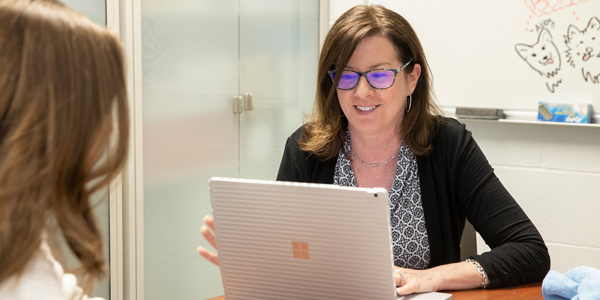ACUE program focuses on building classroom culture
Pilot program a year ago leads to scaleable version for Miami

ACUE program focuses on building classroom culture
A pilot program on inclusive pedagogy went so well last year, Miami University decided to scale it up.
This new program, “Fostering a Culture of Belonging,” will focus on building a classroom culture where each student feels seen, heard, and valued. Developed by the Association of College and University Educators (ACUE), the course is offered this fall to three cohorts at Miami totaling 99 participants who will earn a microcredential upon completion.
“Fostering a Culture of Belonging” is a joint effort between the office of the provost and the Center for Teaching Excellence (CTE). The program begins with a kickoff on Sept. 11 and runs for eight weeks from Sept. 18-Nov. 20.
Spots are still available, said Dana Cox, associate provost for faculty affairs. Interested faculty members can email Cox by Sept. 1 to reserve a spot or for more information.
“We want people to feel this is a campus-wide conversation,” Cox said. “It’s not just the participants who will benefit from it. It’s everyone who is engaged in those conversations alongside them.”
There are four course modules: Managing the Impact of Biases; Reducing Microaggressions; Addressing Imposter Phenomenon and Stereotype Threat; and Cultivating an Inclusive Environment.
Last year’s pilot program featured 20 participants and was hosted by the CTE and the Office of Institutional Diversity and Inclusion.
Ellen Yezierski, CTE director and professor of Chemistry and Biochemistry, said the program sends a valuable message.
“Inclusive teaching causes students to have a greater sense of belonging,” Yezierski said. “We are asking students to stick their necks out, to take intellectual risks. Real learning takes a space where people feel they belong.”
“Fostering a Culture of Belonging” is an asynchronous online course guided by an ACUE certified facilitator. Yezierski said topics are talked about at a higher level, but they are anchored with strategies that can be used in classrooms.
One example Yezierski spotlighted is from the imposter phenomenon module, where former students are invited back to their old classroom to share their struggles and successes.
“Having the resources already built for you can be important,” Yezierski said. “The specificity of techniques is a huge thing. That’s one of the biggest strengths. This stuff is classroom ready – go for it.”
Cox said all academic divisions are represented among the cohorts.
“We wanted to ensure all departments had equal access to the program,” Cox said. “Anyone who has a desire and wants to bring this expertise into larger conversations is welcome to join us.”